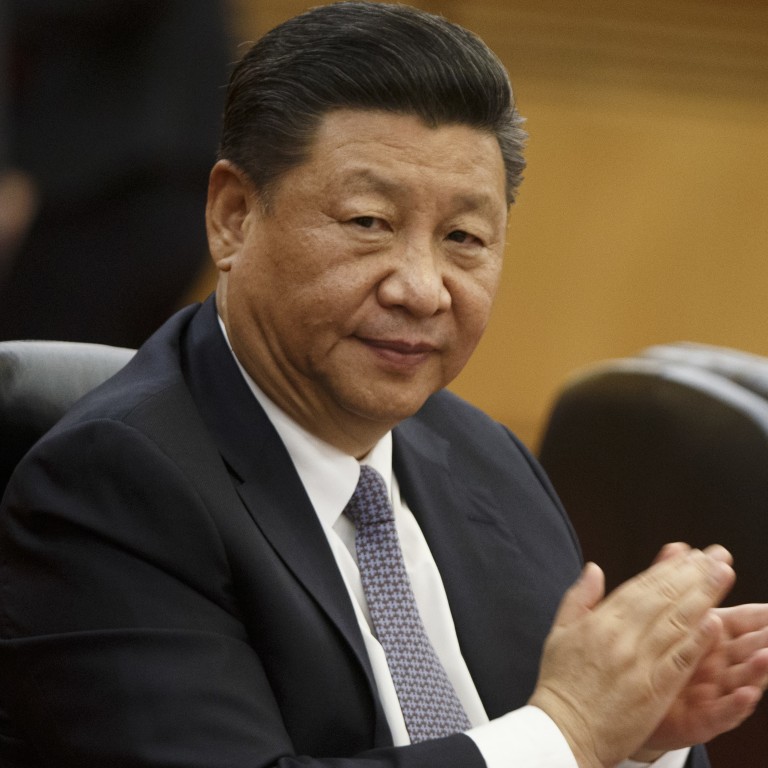
China leaders vow to reform, not to stimulate, economy as trade deal with US nears
- Surprisingly strong growth in first quarter of 2019 brings shift in policy focus
- Beijing’s pledges chime with Washington’s demand for ‘structural reform’
China’s senior communist leaders have congratulated themselves on saving the country’s economy from a hard landing during a trade war with the United States and have decided to focus on “structural reforms”, instead of stimulus, to move the economy forward.
The Politburo, the 25-member ruling body of the country headed by President Xi Jinping, reviewed China’s growth in the first quarter on Friday and concluded that market confidence has returned and economic performance was “better than expected”, the official Xinhua news agency reported.
The focus will shift to “reform and opening up” as well as “restructure”, according to the Politburo meeting that was held at a time when China and US are in the final stages of negotiations on a trade deal.
While the statement did not mention the stand-off with the US, the focus on reform echoed Washington’s demand for Beijing to make “structural” changes to its state-led economy.

Ding Shuang, chief China economist at Standard Chartered Bank, said the statement was a response to concerns at home and abroad about China’s structural reform during the trade war period.
“It reaffirmed that Beijing will continue to push domestic reforms,” Ding said.
In another departure from earlier Politburo meetings, the statement on Friday did not mention “stabilising employment, finance, trade, foreign investment, investment and expectations”, which suggested that China’s emergency economic management focus on growth is largely over.
China expected to resume role as driver for global economy, BlackRock says
“The stimulus will be weak and the reform will be strong,” Liang Zhonghua, chief macro analyst at the Research Institute of Zhongtai Securities, said. Liang said senior leaders sent a signal that economic growth was no longer foremost after a surprisingly strong start to 2019.
Ding said that China’s leading economic policymakers were also less worried about growth.
China’s gross domestic product expanded by 6.4 per cent in the first quarter of this year, exceeding most estimates and remaining at the top end of China’s target growth range of 6.0-6.5 per cent for 2019, although many incentives, including a cut in value-added taxes, were yet to take effect.

Other major indicators in March, from industrial output to purchasing manager index, pointed to a broad-based recovery in the world’s second biggest economy.
However, the stabilisation was achieved using Beijing’s old playbook of massive capital spending fuelled by easy credit – a state-driven model that has proved increasingly inefficient, wasteful and unsustainable.
According to the Politburo statement, China will try to push “supply-side reforms” and “structural deleveraging”, which were Xi’s hallmark economic policies that were put on the back burner last summer as Beijing’s priority at that time was to arrest a deepening slowdown.
“There are still downward pressure on the Chinese economy stemming from both cyclical factors and, more importantly, structural and institutional issues,” the statement said.
China issues record new loans in the first quarter of 2019 as Beijing battles slowing economy amid trade war
China will try to stabilise its economy and social situation through “new developments in opening up and reform and restructure”, it said.
Specifically, the Politburo said China’s proactive fiscal policy will focus more on efficiency while its prudent monetary policy will be appropriate.
The leaders stressed that they will continue to help private and small businesses and open China’s market wider to foreign investments.
Meanwhile, China will not tolerate speculative property investment and purchases as “property is to live in, not to speculate on”. However, it will delegate the property market control to municipal authorities and each municipal government can use their own measures to implement Beijing’s guidelines.


